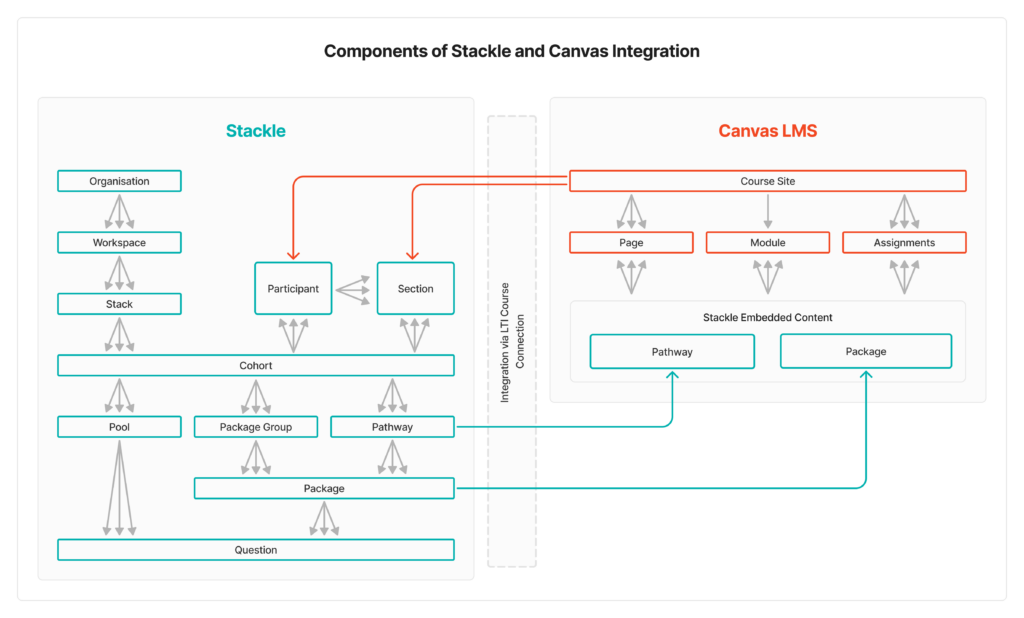Overview #
Packages are an essential component of Stackle, because they are the way you provide Participants with engaging content to interact with. Each Package contains one or more Questions that you plan to deploy to your Participants. When you embed a Package within your learning content, you are automatically embedding all the Questions that make up the Package. You can create and embed as many Packages as necessary to support the learning objectives you aim to achieve.
By default, Packages (when created) inherit their parent Package Group’s use case, but this can be modified in the Package Editor. For more information on this, please refer to Configuring a Package Group and Configuring a Package.

With no limit to the number or combination of Questions, Packages offer incredible versatility and can be tailored to various learning outcomes. Questions can be sourced from any Pool of the selected Cohort within the Stack, making it incredibly simple to configure various Package arrangements.
Additionally, Packages are monitored in the Analytics panel, providing valuable insights into Participant activity and engagement. This data can help you better understand the effectiveness of your content and guide future improvements.
Where do Packages fit in Stackle? #
Packages sit directly under a Package Group. They can contain many Questions.

How can we use Packages? #
Packages are the driving force behind Stackle’s flexibility and adaptability, enabling a multitude of use cases tailored to your specific needs. With your creativity as the only limit, here are some ways to utilize Packages to arrange questions for your Participants:
- Quizzes and Assessments: Design formative and summative assessments to measure student progress and understanding of course material.
- Pre- and Post-Module Surveys: Gauge Participants’ prior knowledge and evaluate their learning after completing a module.
- Interactive Discussions: Create thought-provoking questions that spark engaging posts that can be shared among Participants.
- Scenario-Based Learning: Develop immersive, real-life scenarios to challenge Participants’ critical thinking and problem-solving skills.
- Peer Review Activities: Encourage Participants to evaluate and provide feedback on their peers’ work.
- Reflection and Self-Evaluation: Prompt Participants to reflect on their learning experiences and identify areas for improvement.
- Flipped Classroom: Prepare questions that guide Participants through pre-class materials, enabling in-class time to focus on deeper understanding and active learning.
Remember, the possibilities are nearly endless when it comes to using Packages in Stackle. Feel free to explore and experiment with different approaches to create a unique and engaging learning experience for your Participants.